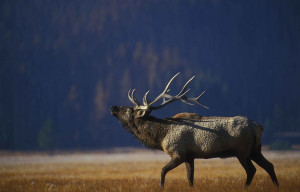
"What did I have to offer a world that was forgetting? My memory! How could my memory help? By offering comparisons! By telling the young what once was. By considering our losses! I found the more I remembered, the more I could remember! Millions of things."
--The Old Man, To the Chicago Abyss by Ray Bradbury
Sometimes it is hard for me to articulate the importance of soundscapes to people that are unused to thinking about them. I ask them to think of their favorite song or sound. Is there a memory that is conjured up? What do you see? What do you smell, feel? Once we've tried that experiment, I'll ask them to think of their favorite scent. Is there a sound or many sounds that comes to mind? What about a favorite object? What does it smell or sound like? All of these sensory perceptions are processed in the same parts of the brain as emotional memories. This means that, for our purposes, sound and memory are linked. Documenting and preserving sound is important because if we lose these sounds, we lose our memories of what the world was, of what it is, of what it could be again someday.
A primary purpose of Threshold Shift is to call attention to the efforts by scientists and citizen-scientists documenting natural soundscapes in order to help protect and perserve them.The sounds of place are as delicate as the places themselves. Once the environment or species have changed, it could take lifetimes, if at all for, those habitats to sound and thus feel the same. This is why so many people the world over find it important to record; so that we know what is there and so that others can experience what we love about the Earth. These recordings allow us to circumnavigate the globe, even time travel, just using our ears.
We are traveling to Rocky Mountain National Park with Dr. Jacob Job of Colorado State University's Sound and Light Ecology Team for the annual fall elk rut that happens between mid-September and mid-October. This is when the bull elk start bugling to claim territory and attract mates. This particular recording is from two weeks ago, and if you are currently near Rocky Mountain National Park near Fort Collins, Colorado, you can go to the park and hear this during the course of the day.
Dr. Job, our recordist, is the Listening Lab Manager at CSU and helps coordinate outreach efforts with the university's students and the National Park Service. The National Park Service's Natural Sounds and Night Skies Division is tasked with studying, preserving and restoring, where possible, the soundscapes and starscapes of America's National Parks. These recordings were created for educational and outreach purposes as part of the cooperative agreement between the Department of Fish, Wildlife, and Conservation Biology at Colorado State University and the Natural Sounds and Night Skies Division of the National Park Service. Dr. Job uses his recordings "to evoke memories and emotions associated with places with the hopes that conservation efforts become that much easier." If you would like to learn more or get involved in advocacy and outreach efforts surrounding natural soundscapes, please check out the Incomplete Bibliography and past episodes for further resources.
Dawn, Elk Rut, Moraine Park, Rocky Mountain National Park
Recording Purpose: Document the rut soundscape for the park as part of the soundscape project; Natural Sounds and Night Skies Division/Colorado State University Cooperative Agreement Project
Recording Date: September 23, 2017 at 5:40 AM
Recording Equipment: Sound Devices 722 Digital Audio Recorder and two Audio Technica 4022 omnidirectional microphones placed in homemade binaural housing
Recorded by: Jacob Job
Intro/Outro Soundscape: Thunderstorm, Hollowell Park, Rocky Mountain National Park
Recording Purpose: Document the rut soundscape for the park as part of the soundscape project; Natural Sounds and Night Skies Division/Colorado State University Cooperative Agreement Project
Recording Date: June 6, 2017 at 1:00 PM
Recording Equipment: Sound Devices 722 Digital Audio Recorder and two Audio Technica 4022 omnidirectional microphones placed in homemade binaural housing
Recorded by: Jacob Job
Join us next Wednesday, Oct 18 from 12 am-3 am for our final long form special and again at 10 AM on Friday, Oct 20 for another episode of Threshold Shift where we give the mic to nature and amplify Earth. Threshold Shift is a KBOO Sound Artist in Residency project running through the end of October.
- KBOO


